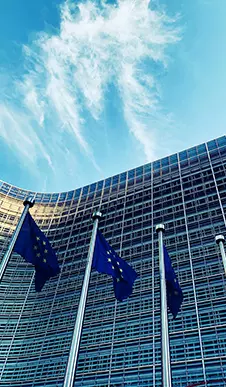State aid and Subsidy Control are the respective EU and UK (post-Brexit) regimes for the management, regulation and enforcement of subsidies as part of the wider Competition Law regimes existing in each jurisdiction.
Members of the team have worked within and with the European Commission in Brussels and the Competition & Markets Authority in the UK in addition to the EU and national courts, alongside a great breadth of relevant experience of practice at the highest levels over decades.
Independent legal directories corroborate our position in the market: Jonathan Branton has been described in the Chambers & Partners as a "star player in State Aid" and is listed in the UK Legal 500 Hall of Fame in recognition not only of his expertise but also his customer service.
The leading law firm for Subsidy Control advice is DWF – our lawyers helped Parliament design the Subsidy Control Act 2022, successfully advised on the UK's first Subsidy Control case before the Competition Appeals Tribunal and notified the first subsidy to the Competition and Markets Authority. Therefore, whether you are a Central Government official designing a new national initiative, a Combined Authority delivering a new programme or an international business looking to secure public investment for a major capital project, our specialist lawyers can help you navigate the Subsidy Control rules successfully and defensibly to achieve your objectives.
The right Subsidy Control advice protects public funding from being recovered, so it's important to select Subsidy Control advisers with genuine expertise and experience in this area of law.
DWF's team of Subsidy Control experts has been trusted to advise on the Subsidy Control compliance of some of the UK's most high profile public funded projects. This includes advising on over 20% of the successful bids to the Levelling Up Fund.
















